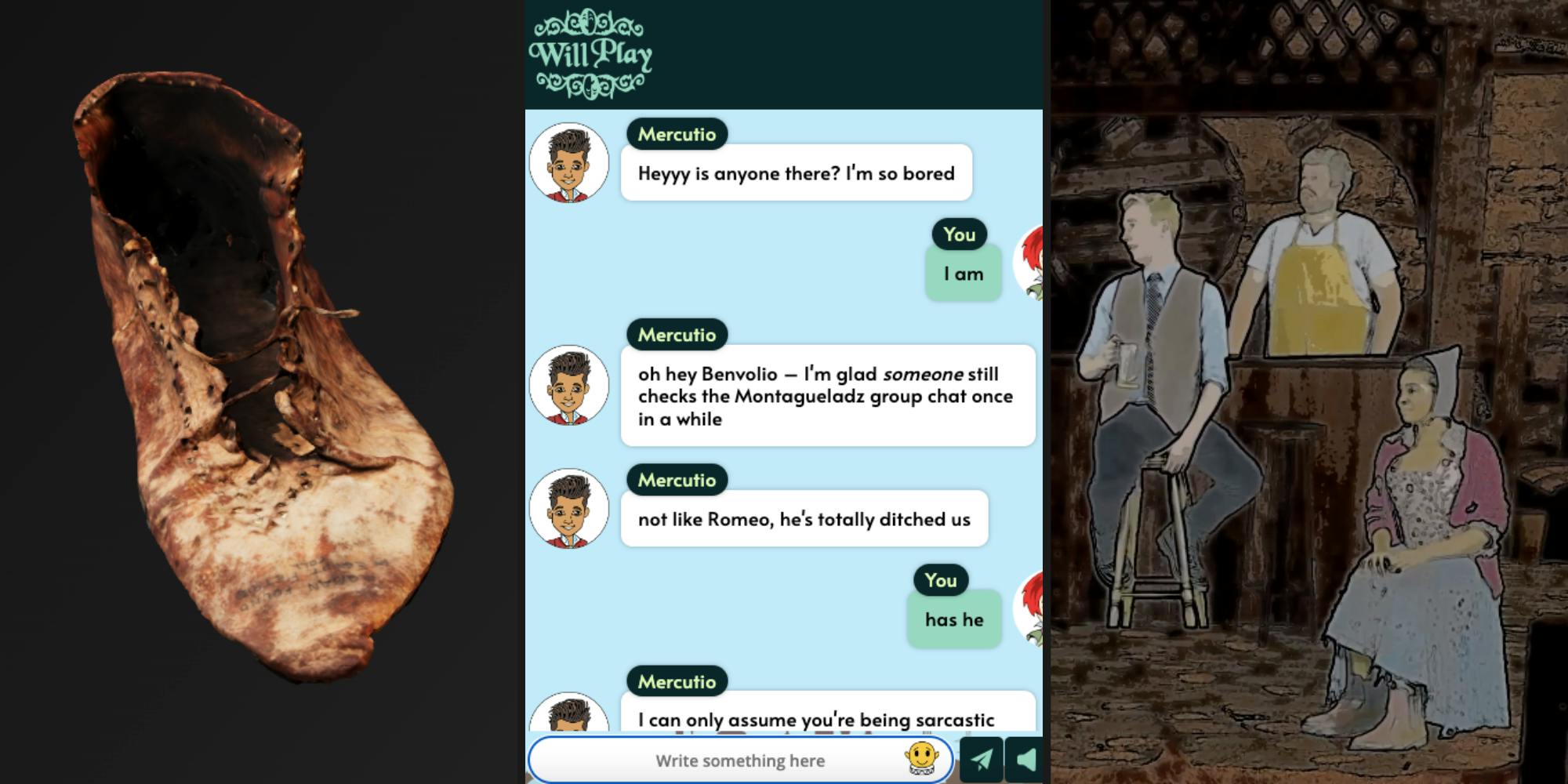We are thrilled to announce our latest ed-tech collaboration, with Oxford University’s Humanities Division. This project, Conversational Learning, will create a new form of AI-powered educational tool for Humanities teaching, building on previous prototypes we developed and tested in schools with the university.
Charisma.ai and Oxford University began working together in 2019, when we created an interactive retelling of Romeo and Juliet for school students. This innovative digital resource, WillPlay, modeled a new way of engaging with Shakespeare, and demonstrated the potential of Charisma.ai as an educational tool. Two more joint prototypes quickly followed: Virtual Chaucer, which combined Charisma-powered conversation and performances by Creation Theatre to bring The Canterbury Tales to new audiences; and Talking Objects, an interactive 3D model of a Roman-Egyptian shoe with its own story to tell.

Our three early prototypes: from left to right, "Talking Objects: Roman-Egyptian Shoe", "WillPlay" and "Virtual Chaucer".
Conversational Learning represents an exciting new phase in our collaborative ed-tech development. For the past 12 months, the team at TORCH (The Oxford Research Centre in the Humanities) has been consulting with school teachers and other educational stakeholders, finding out what worked – and what didn’t – in our suite of early prototypes, and exploring new ideas for using conversational AI to boost educational outcomes in English. You can read about some of the learnings from that consultation here.
For us, two findings stand out.
The first is a desire for digital resources that move beyond multiple-choice quizzing. Students can already memorise character names and spot similes in poems, and there are plenty of tools out there to help them revise these skills. But writing – devising and developing their own original ideas – this is something many students find tricky, especially in exams. It’s traditionally been much harder, of course, to design interactive resources that help improve original writing. This is where LLMs have the potential to revolutionise digital provision for essay-based subjects.
And that brings us to the second key finding from the resource consultations: most teachers are ready to embrace generative AI as a learning aid. Many began experimenting with ChatGPT soon after it launched, to come up with lesson plan ideas and generate sample answers for discussion in class. Some have even tried using it for a first pass at marking student essays, speeding up a lengthy process and saving valuable time. But in all these use cases, ChatGPT is a digital assistant, a time-saving helper tool, not an alternative to human input and oversight. Its work is never presented to students unchecked, and teachers are at pains to make students see that AI-generated answers simply aren’t as interesting as the work they themselves can produce.
A trailer for our interactive Shakespeare resource, WillPlay, captures teacher and student feedback about the experience.
These findings pave the way for new ed-tech for Humanities subjects that embraces the potential of generative AI in a thoughtful, controlled way. The kinds of self-marking learning and revision tools that have been a staple of Maths and Science teaching for over a decade should now be possible for essay-based subjects as well – yet it is crucial, for teacher confidence, that students are not presented with unchecked AI-generated content.
Working with the team at Oxford, our next challenge is to develop a brand-new prototype concept that responds to the consultation findings, balancing educators’ resource wishlists with their concerns around gen AI. Watch this space to find out how the collaboration evolves!